APFW2025: Food and fire: Igniting change in Asia-Pacific
19 November 2025, Chiang Mai
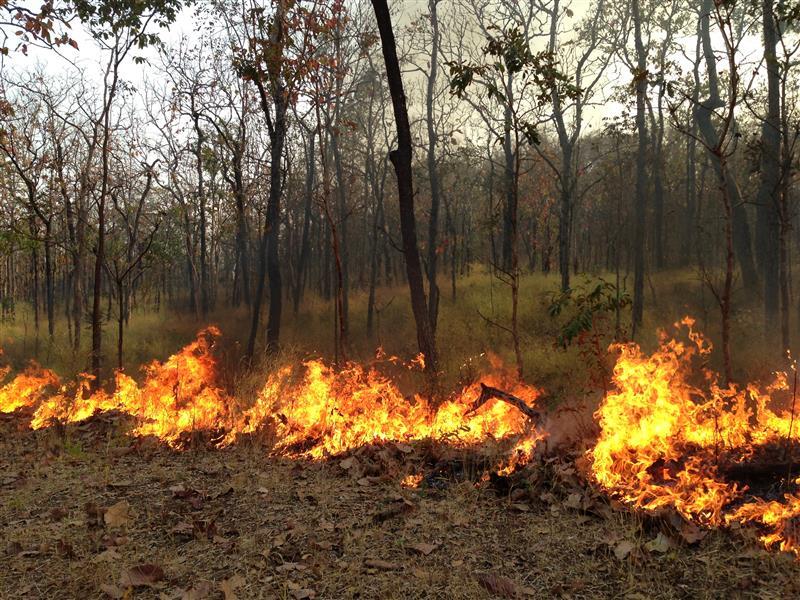
As the Asia-Pacific faces intensifying wildfire seasons and increasing food insecurity, community-centred collaboration offers a pathway toward resilience. © Paula Sarigumba/ITTO
A spirit of collaboration and innovation marked the Asia-Pacific Forestry Week 2025 side event “Igniting Change in Asia-Pacific: Food security through collaborations on community-based fire management,” co-organized by the International Tropical Timber Organization (ITTO), RECOFTC – The Center for People and Forests, and the Asia-Pacific Network for Sustainable Forest Management and Rehabilitation (APFNet).
The session brought together regional experts, policymakers, and community forestry practitioners to explore how partnerships on community-based fire management (CBFiM) can enhance food security, strengthen resilience, and foster sustainable forest landscapes across the Asia-Pacific region.
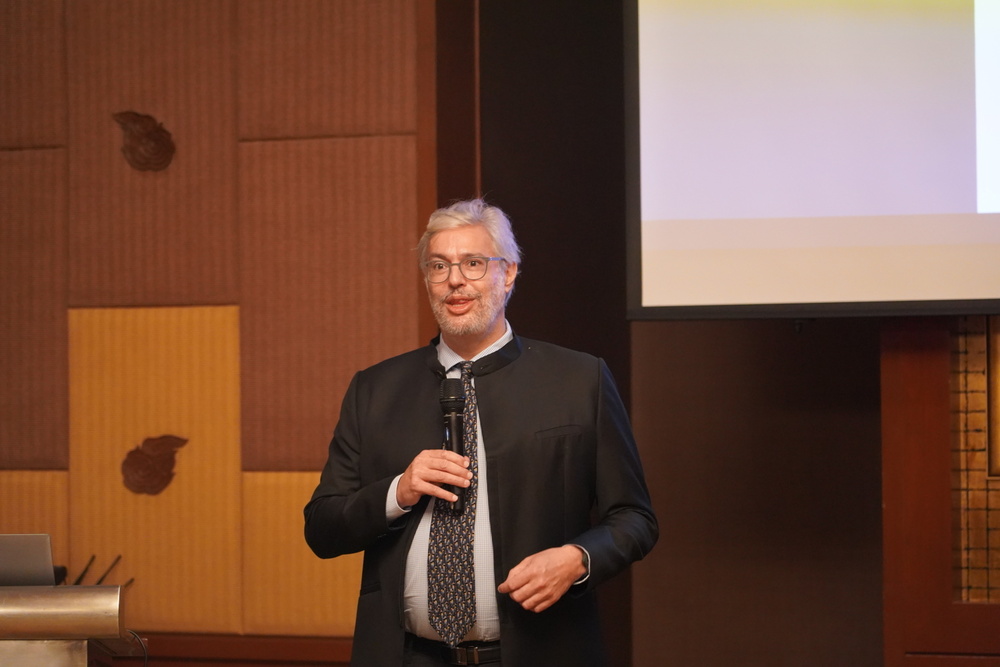
Forest fires and food security: A shared challenge
In his opening remarks, David Ganz, Executive Director of RECOFTC, highlighted the growing attention being given to the impacts of forest fires on local communities, following decades of neglect. “For 25 years, I’ve worked on fire management, but I’ve never seen as much public and policy interest in the human impacts of fire as we see today,” he said. Dr Ganz emphasized that agriculture and forest sectors are tightly interlinked, as fires often cross these boundaries, impacting food security, biodiversity, and climate resilience alike.
He also noted the growing need to integrate fire management into national climate and biodiversity commitments. “We want countries that are effectively managing fire to be able to count those emission reductions responsibly toward their Nationally Determined Contributions (NDCs),” he said.
Collaboration in action: fireside conversations
Moderated by Janita Gurung of RECOFTC, the session’s “fireside chat” featured experts presentations highlighting innovative partnerships and practical tools.
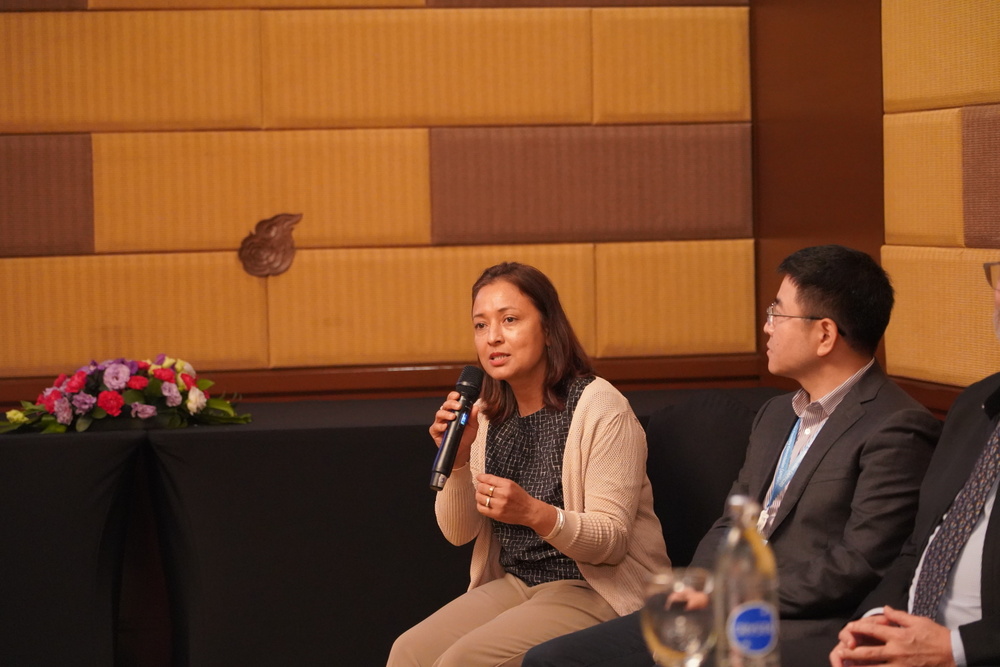
Sudha Khadka, Country Program Director for RECOFTC Nepal, shared how the Forest and Farm Facility (FFF) initiative is supporting community forestry groups in addressing the escalating fire risks in Nepal. She described how changing migration patterns, policy confusion under federalization, and unmanaged forest biomass have led to over 5,000 fire incidents last year. Through collaboration with the UN Food and Agriculture Organization (FAO) and national partners, RECOFTC is developing provincial fire-risk maps, policy reviews, and pilot community-based fire management plans to strengthen local governance and unlock new financing for forest fire management.
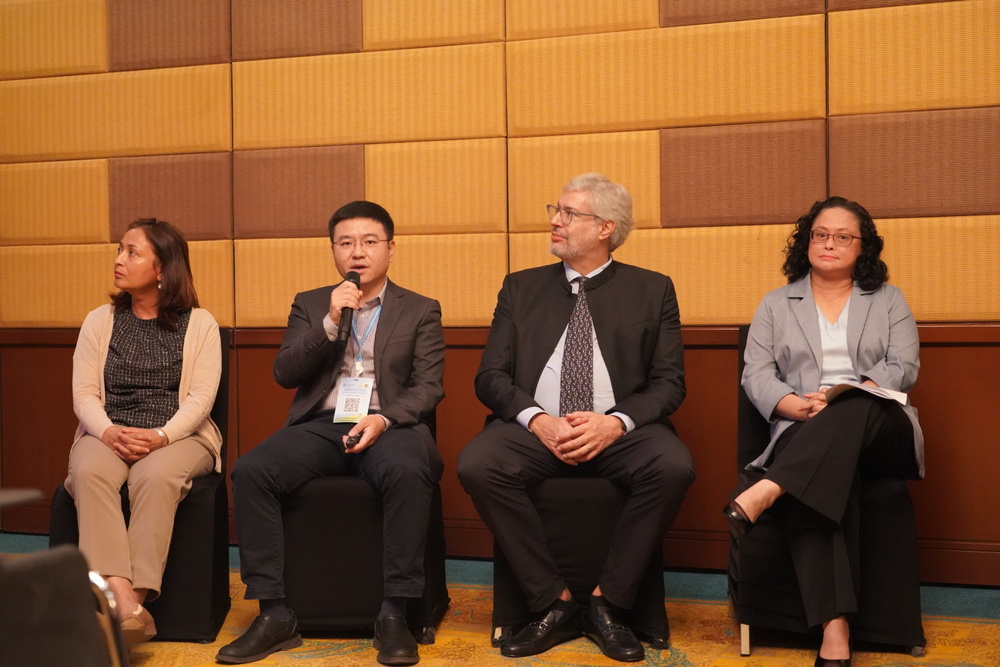
Kebiao Huang, Head of the Planning Division at APFNet, introduced the Southeast Asia Fire Management Mechanism (SEAFiMM), a regional platform co-initiated with RECOFTC to enhance collaboration, knowledge sharing, and policy dialogue across governments, communities, and research institutions. Established in 2024, SEAFiMM aims to break down silos among agencies and catalyze coordinated action across the region. “The mechanism is not a new institution,” Huang explained. “It’s a platform to connect and strengthen existing efforts.”
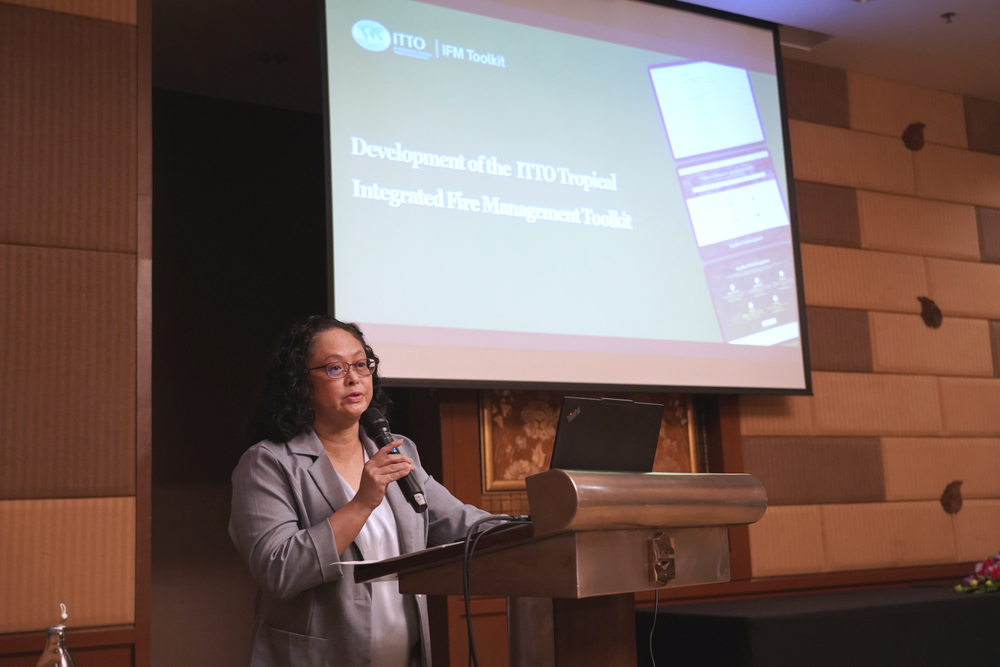
Representing ITTO, Jennifer Conje, Director of Forest Management, presented the forthcoming Tropical Integrated Fire Management (IFM) Toolkit, a global web-based clearinghouse containing close to 400 curated resources on tropical fire management. Built around the “Five Rs” of review, risk reduction, readiness, response, and recovery, the toolkit consolidates best practices, training manuals, guidelines, and communication tools from across the tropics. “Our aim is to create a one-stop shop for practitioners and policymakers working on fire in tropical regions,” Ms Conje said. The ITTO Tropical IFM Toolkit will be launched publicly in 2026.
New initiatives: Local action, regional learning, and global coordination
The session also featured the announcement of FLARE, a new RECOFTC-led research project supported by the Canadian government through the International Development Research Centre (IDRC). The research initiative will operate in selected “model forests” across Southeast Asia, including sites in Thailand, Indonesia, and the Philippines, to explore post-fire recovery, agroforestry innovation, and food security through nature-based solutions.
Additionally, RECOFTC launched a Thai-language manual on community-based fire prevention and prescribed burning, developed in partnership with Kasetsart University, to strengthen local capacities ahead of the upcoming fire season.
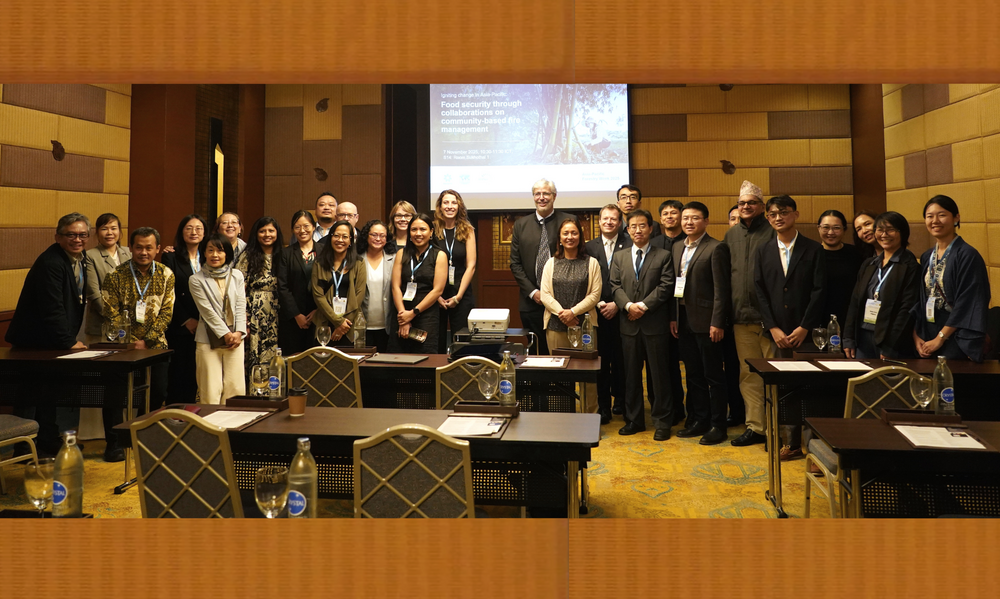
Linking communities, policies, and global goals
The discussions underscored that effective fire management requires not only technical solutions but also inclusive governance and management. Panellists emphasized the importance of gender equality and social inclusion in CBFiM, the need to align local practices with national policy frameworks, and the value of traditional fire knowledge.
Ms. Conje noted that ITTO leads a Joint Initiative of the Collaborative Partnership on Forests (CPF) to promote IFM in the Tropics, in collaboration with FAO, the Global Fire Monitoring Center (GFMC), and RECOFTC, seeking to reduce duplication and leverage the respective strengths on the issue. “In a time of increasingly limited resources, efficiency and collaboration are key,” she said.
In his closing remarks, Philippe Brunet of the Swiss Agency for Development and Cooperation (SDC) commended the growing momentum around fire management in the region. He highlighted the potential of the new mechanisms and guidelines to scale locally driven solutions and bridge sectors—from forestry to disaster management to climate action. “We now have the tools, the knowledge, and strong partnerships,” Mr Brunet said. “The challenge is to turn this ambition into coordinated action that protects forests, communities, and food systems.”
A call for collective action
As the Asia-Pacific faces intensifying wildfire seasons and increasing food insecurity, the side event emphasized that community-centred collaboration offers a pathway toward resilience. ITTO and its partners are committed to strengthening partnerships, sharing knowledge, and supporting communities on the front lines of forest and fire management.